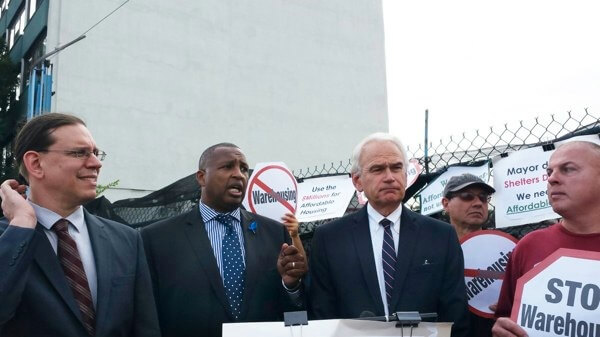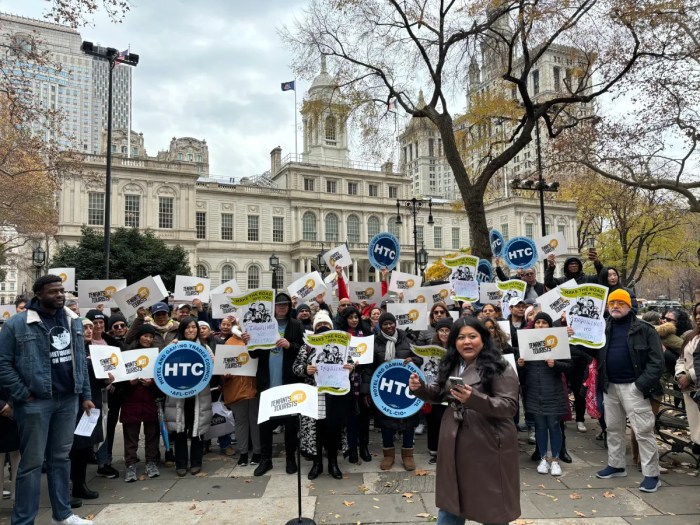By Bill Parry
Several Reform Party candidates running for office in next month’s general election gathered outside the former Pan American hotel in Elmhurst Tuesday to present their comprehensive plan to combat the city’s homeless crisis. The blueprint was drafted by civic leader Robert Holden and urban planner Paul Graziano, both of whom are running for City Council seats on the Reform Party line.
The press conference was held on Queens Boulevard near the hotel that was converted into the Boulevard Family Residence in 2014, sheltering homeless families, many of whom stayed there in excess of a year due to a shortage of permanent affordable housing in New York City. At the same time, Mayor Bill de Blasio announced his administration is on track to build and protect 200,000 affordable homes by 2022, two years ahead of schedule, but that is not fast enough according to New York State Reform Party Chairman Curtis Sliwa.
“The current administration seeks to place Band-Aids on the homeless problem while simultaneously giving major concessions to developers to build luxury condos,” Sliwa said. “This has got to end and it will under our plan.”
A cornerstone of the plan offers developers “bonus” height of buildings or bulk allowances for offering to include affordable housing in their projects. But this housing often is not permanently affordable and it is only offered to those developers seeking to build out-of-context, according to Graziano, a City Council Reform Party candidate in District 19.
“Our plan makes affordable housing a mandatory part of as-of-right zoning — unlike the mayor’s disastrous Mandatory Inclusionary Housing and Zoning For Quality policy — and also provides a way for families and individuals on the brink of homelessness to remain in their own communities.”
Holden, a City Council Reform Party candidate in District 30, who will also appear on the Republican, Conservative, and Dump de Blasio party lines, wrote the second half of the policy paper.
“The plan addresses not only affordable housing, but prevention of homelessness and emergency shelter placement,” he said. “It shifts the placement of individuals and families away from hotels and shelters and toward safe spaces provided by local faith-based organizations, which have proven to be better able to handle individualized needs of this population.”
Holden said advisory committees could be formed by community boards where the “best and brightest minds” could counsel the homeless and help them with resumés, finding employment and finding apartments. Many churches and not-for-profits are interested in providing immediate short-term housing as part of their missions.
“There are convents that stand empty. We can put families in there and make better use of those spaces,” Holden said, contending former Mayor Michael Bloomberg put faith-based organizations on the sidelines as the crisis began by overlegislating requiring licenses and fees forcing volunteers to opt out.
“These churches and organizations are dying to help in regard to homelessness,” Holden said. “It’s time to let them back into the game.”
Reach reporter Bill Parry by e-mail at bparr





































